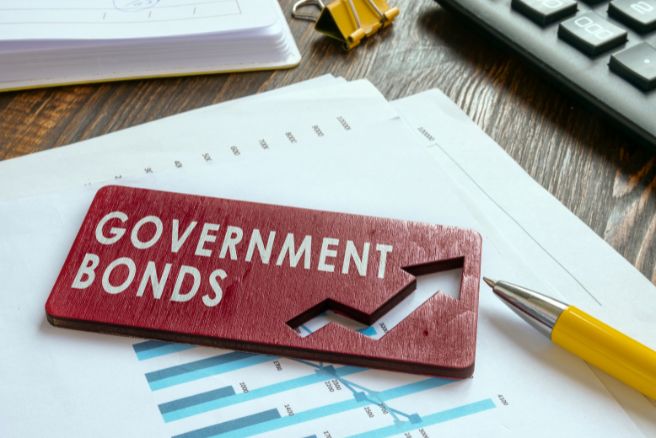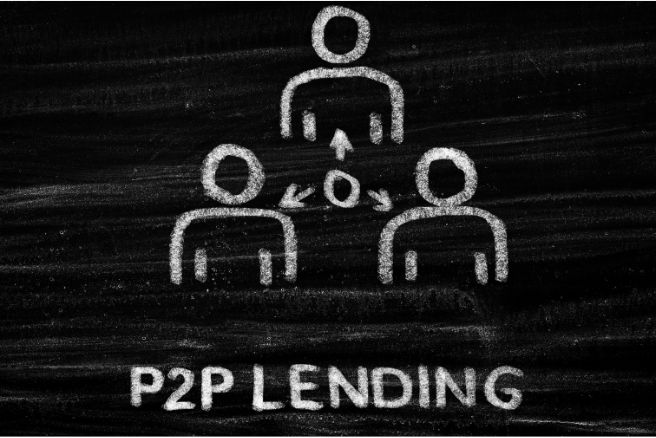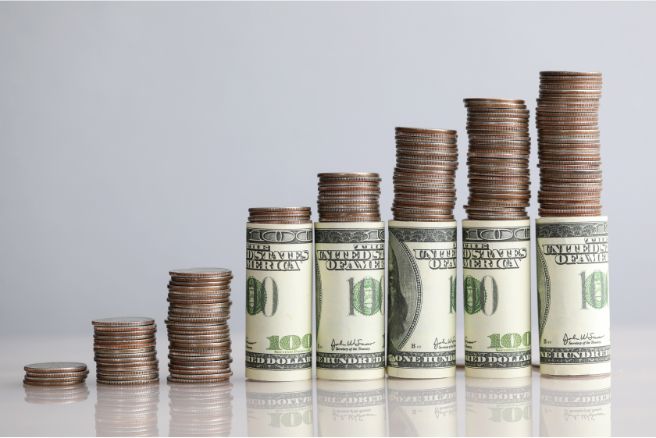
![7 Best Ways to Invest 100K in the UK [Ultimate 2024 Guide]](https://cms.baroncabot.com/media/posts/gww2bl.jpg)
With £100,000 cash in your pocket, you’re eager to invest and grow your wealth. But where do you begin?
The UK offers diverse investment opportunities to turn your £100K into even more. Investing in a rental property, for example, can generate passive income while the value appreciates over time. But it’s not your only option. Stocks, bonds, peer-to-peer lending, and more allow you to diversify your portfolio.
This article explores the top 7 best ways to invest 100K in the UK, from residential property to equities and beyond. With the right strategy, you can make your money work harder and achieve your financial goals faster. Read on to discover your best options.
With £100,000, you can invest in the following:
Buy-to-let properties are one of the most stable options when it comes to investing 100K in the UK. With £100,000, you can partner with Baron & Cabot to put down a 20% deposit for an investment property with the option of taking out a mortgage to finance the rest. The remaining cash can then be used to make improvements that will attract high-quality tenants and increase your rental income.

To ensure a guaranteed income stream, look for areas with a high demand for rentals, such as near universities or city centres — these are some of the best places to invest 100K. A two-bedroom flat in a desirable location could generate over £1,000 a month in rent. After a few years of rent payments, your tenants would have paid off a large portion of the mortgage. The Baron & Cabot team is always on the lookout for the most rewarding property investment locations in the UK — reach out to us now to learn more.
At Baron & Cabout, all our property developments are move-in ready. However, if your property investment strategy is to purchase a distressed property and make necessary renovations to increase its appeal and rental price, we recommend budgeting some part of your £100K capital for this. New kitchens, bathrooms, flooring, and a fresh coat of paint are worthwhile investments. You can charge a premium for an attractive, modern space. Don’t forget that regular maintenance and repairs are necessary to keep your property desirable.
As a landlord, you can deduct certain expenses from your rental income tax liability, including mortgage interest, property taxes, and repairs. You can also deduct any expenses you spend to improve the property when paying Capital Gains Tax (CGT). These tax benefits help maximise your profits.
Over time, you build equity in the property as tenants pay down the mortgage and the value of the home appreciates. When you’re ready to exit, you have several options — you can choose to sell for a lump sum, refinance to pull cash out for another investment or keep it as an income-generating asset. Many landlords build entire portfolios of buy-to-let properties to fund their retirement.
With the right property and by utilising your capital wisely, buy-to-let investing is a stable way to generate wealth in the UK. Baron & Cabot’s team of property investment experts can guide you through the process to find the ideal investment and achieve your financial goals.
Tip: Check out our house price predictions for 2024 to determine if now is a good time to invest in property.
Stock investment markets are one of the best places to invest £100,000 and generate solid returns over the long run. The average annual return of the FTSE All-Share Index over the past 4 decades is around 7.48%. While past performance is no guarantee of future returns, the stock market has historically outperformed cash and bonds over long periods.
Tip: Check out our guide exploring whether now is a good time to invest in stocks.
Consider the following when investing in stocks:
With £100,000 to invest, you’ll want to keep fees low. Look for a broker that charges no commission on stock, ETF, and fund trades like Freetrade or Trading 212. These brokers make it inexpensive to build a diversified portfolio.
For hands-off investors, index funds are an excellent choice to secure your financial future. They provide broad market exposure and historically generate average market returns. Look for funds that track the FTSE 100 or FTSE All-Share Index.
Don’t put all your eggs in one basket. For the best chance of strong, consistent returns, invest across different companies, sectors, and asset classes. You might put 60–70% in stocks, 20–30% in bonds, and 5–10% in real estate or commodities. A diversified investment portfolio helps manage risk.
As markets change, the values of your investments will rise and fall. It’s a good idea to review your portfolio at least once a year to make sure your asset allocation is still in line with your financial goals. You may need to sell some investments and buy others to rebalance. Frequent rebalancing helps ensure you’re not taking on more risk than you should.
With the right low-cost broker, a diverse portfolio of index funds and ETFs, and ongoing reviews, investing £100,000 in the stock market could generate solid long-term returns. But go in with realistic expectations, understanding that short-term fluctuations are part of the deal. By staying invested for the long haul and keeping fees low, you can exploit the stock market and make your money work for you!
Tip: If you’re still unsure of where to invest, check out our guide where we explained whether to invest in property or shares.
One of the best things to do with 100K is to invest in corporate bonds. They’re considered very low risk since they’re both backed by the government and the Financial Services Compensation Scheme. According to the data sourced from Bloomberg, British government bonds, known as gilts, have an average yield of 3.93% and coupon rates of 0.5% for a 5-year term.

There are different types of gilts, so take note of their distinctions below:
These are gilts with 1 to 5 years until maturity. Short-term gilts are low risk, as the UK government has never defaulted. You can buy gilts directly from the government or through a stockbroker, with interest being paid semi-annually. Short-term gilts provide easy access to your money but very low returns.
Gilts with 10 to 30 years until maturity offer higher returns, with an average return of 6.28%, offsetting the risks of tying up your money for decades. However, long-term gilts can lose substantial value if interest rates rise, as bond prices move inversely to rates. You’re also exposed to the risk of default over the longer timeframe, however unlikely. Many investors buy long-term gilts through bond funds to diversify.
Index-linked gilts provide returns linked to inflation to protect the value of your investment. The principal is adjusted based on the consumer price index (the UK’s domestic measure of inflation).
In summary, government bonds provide security but little opportunity for meaningful returns, given today’s low interest rates. For a long-term investment of £100,000, gilts alone are unlikely to meet your financial goals. However, as part of a diversified portfolio, gilts can provide stability and balance riskier investments like stocks.
The choice of government bonds versus other asset classes depends on your investment objectives, risk tolerance, and time horizon. Seek independent financial advice from a financial advisor to make an informed decision.
If you seek where to invest 100K in the UK for a diversified portfolio, gold and precious metals like silver, platinum, and palladium are excellent options. Current data shows that about 20% of the world’s refined gold is held by private investors. This indicates the amount of trust gold has gained over the years and for valid reasons outlined below.
Gold is typically viewed as a hedge against inflation. When inflation rises, gold prices also tend to rise. As the value of currency declines, gold maintains its purchasing power. For example, in the 1970s stagflation, gold rose about 750% while the FTSE lost about 70% of its value in the same period.
Global demand for precious metals like gold and silver is increasing, especially in developing countries. As incomes rise, demand for jewellery and technology increases. This rise in demand, combined with limited supply, could drive precious metal prices up over the long run.
Precious metals like gold and silver have little correlation with stocks and bonds, so adding them to your portfolio may help reduce overall volatility. When other assets decline, precious metals often hold their value or even increase in price. This negative correlation provides an effective way to diversify your investments.
There are several ways to invest in precious metals, and here are some top options:
In summary, allocating a portion of your portfolio to gold and precious metals is an effective way to diversify, protect against inflation and benefit from rising demand.
Peer-to-peer lending has become an increasingly popular way for investors pondering what to do with 100K in the bank. According to a recent report, the UK peer-to-peer lending industry is now worth over £376.6 million, with projections of hitting £397.7 million by the end of 2024.

As an investor in this growing sector, you can enjoy the following benefits:
Peer-to-peer lending platforms connect investors directly with borrowers, allowing investors to earn interest rates far higher than those offered by banks or building societies. Returns of up to 5–10% per annum are not uncommon. By cutting out the middleman, peer-to-peer lending platforms can offer good value to both investors and borrowers.
Peer-to-peer lending provides an opportunity for investors to diversify away from traditional asset classes like stocks and bonds. Because peer-to-peer loans are uncorrelated with the stock market, they can help reduce overall portfolio risk.
The interest earned from peer-to-peer lending is treated as taxable income. However, peer-to-peer lending qualifies for tax-free allowances such as the Personal Savings Allowance and Dividend Allowance. Within a Stocks and Shares ISA, interest from peer-to-peer lending is also tax-free. Using tax-advantaged accounts can help boost your overall returns from this asset class.
While peer-to-peer lending comes with risks like default risk, interest rate risk, and liquidity risk, it remains a great way to invest £100K. For investors looking to diversify into alternative asset classes, peer-to-peer lending is an excellent option with the potential for strong, tax-efficient returns.
Further education is one of the best ways to invest 100K for personal development. According to research, individuals with a bachelor’s degree earn 84 per cent more over their lifetime than those with just a high school diploma. With £100K, you can either get a university degree, take an online course, or learn a skill.
Use £25,000 to £50,000 of your funds to pursue a degree or professional certification in a field that interests you or will advance your career. While the upfront cost may seem high, the long-term rewards of higher lifetime earnings and job opportunities will make this investment worthwhile.
If the time and expense of traditional higher education don’t align with your current commitments, consider enrolling in select online courses. Websites like Coursera, Udemy, and Udacity offer many free or low-cost classes in business, technology, and other high-demand fields. You can gain valuable skills and knowledge for a few hundred pounds, which may open up more advanced job prospects.
While technical skills are important, strong, soft skills are essential for career success. Use a portion of your investment fund to work with a career coach or enrol in courses focused on communication, critical thinking, and leadership. Refining soft skills will make you a well-rounded job candidate and employee, and self-improvement will benefit you in all areas of life.
Take up a hobby or learn a new skill in your spare time. Options include learning to code, improving a foreign language, mastering a musical instrument, or developing a craft or trade skill. Devoting time each week to learning something new and challenging has significant cognitive benefits and may uncover hidden talents or interests that lead to exciting life changes. Remember, continuous self-education and skill development are key to thriving in today’s job market and achieving your full potential.

While the benefits may not be immediately apparent, continual self-improvement will pay dividends for years to come through increased opportunity, advancement, and personal growth. An investment in yourself will never lose value or go out of style.
Starting your own business is a risky but potentially rewarding way for those seeking where to invest 100K in the UK. While failure rates are high for startups, the potential returns from a successful new venture make entrepreneurship an attractive option for investors seeking high rewards.
If you’re willing to overlook the investment risk and pursue this strategy, here is how to go about it:
Before launching a new business, you must develop a detailed business plan that outlines your mission and vision, target market, products and services, marketing plan, operational details, and financial projections. A solid business plan is essential to obtaining funding from investors and securing necessary permits and licenses. Perform extensive market research to determine the viability of your business idea and potential challenges.
You must determine the appropriate legal structure for your new business, such as a sole proprietorship, partnership, or corporation. The legal structure you choose will impact your liability, tax obligations, and reporting requirements. Consult with legal and tax professionals to select a structure that meets your needs.
The majority of new businesses require capital to get off the ground. In addition to investing £100,000 of your funds, you may need to obtain a business loan, line of credit, crowdfunding, or secure angel investment or venture capital to finance your new venture. Develop a compelling pitch to attract additional investors and partners to support the growth of your business.
Surround yourself with a team of smart, motivated individuals to help build and scale your business. Hire experienced managers and staff to handle daily operations and administrative tasks so you can focus on high-level strategy and growth. Offer competitive compensation, benefits, and performance incentives to attract and retain top talent.
Starting a new business from scratch is challenging but can be an extremely rewarding endeavour — better than keeping money in savings accounts. With careful planning, sufficient capital, and the right team in place, you have the opportunity to launch a successful company that provides value to customers and generates solid returns on your investment. While risky, entrepreneurship may be the most lucrative way to invest £100,000 if executed properly.
Given all these 100K investment ideas, you may be interested in our take to help you make an informed decision. Continue reading to learn what we recommend and why.
Investing in property developments remains one of the best ways to invest £100K in the UK and build wealth over the long run. We recommend this approach because of its tangibility, the potential to generate residual income and capital growth, as well as tax advantages.
Unlike many other investments, property is a tangible asset that usually appreciates over time with inflation and as demand increases. For example, house prices in the UK have increased by about 90% on average over the last 18 years. By investing in property, your initial £100K investment could double over the lifetime of a mortgage.
In addition to capital appreciation, property also generates residual income in the form of rental yields. According to recent estimates by B&C experts, the average rental yield on buy-to-let property in the UK is around 5%. What this means is that if you invest £100K in a buy-to-let property, you could generate £5,000 in annual rental income, providing residual cash flow and income. Rental demand in the UK also remains strong, especially in urban city centres.

Property investment offers significant tax advantages over other asset classes in the UK. For example, you can offset mortgage interest payments and maintenance costs against your rental income to reduce your tax bill. You can also claim capital gains tax relief and inheritance tax relief on property investments under certain conditions. These tax benefits allow you to maximise your returns from property investment.
In summary, whether you’re looking to build wealth steadily over time or generate supplementary income, property investment remains one of the best ways to invest £100K in the UK. The combination of capital appreciation, residual income, and tax advantages makes buy-to-let property an attractive choice for any investor looking to make the most of their £100K capital. Contact Baron & Cabot today to ensure success in your property investment journey.
The interest earned on £100K in a year depends on the interest rate. For example, a savings account with a 1% interest rate will earn you £1,000 annually. However, rates vary by account and economic conditions, so using a savings calculator with the current rate will provide a precise figure.
To make more money with £100K, consider building a diverse portfolio of income-generating assets like buy-to-let properties and equity income funds. Opt for a new-build investment property if you aim for growth that outpaces inflation, as they offer the potential for both income and capital gains over time.
The monthly income that £100K will generate depends on the investment’s interest rate or yield. For instance, at a 4% annual yield, you’d generate about £333 per month. However, actual income can vary based on the type of investment, associated risks, and prevailing economic conditions. Using current rates will provide an accurate estimate.
The time it will take for £100K to turn into £1 million hinges on the rate of return. With a 10% average annual return, it could take about 25 years, whereas at an 8% return, it might take closer to 30 years. This showcases the power of compound interest and the importance of a steady, robust return rate.
Ultimately, the best way to invest 100K in the UK comes down to your goals, timeline, and risk tolerance. By diversifying across a few of the options outlined, like real estate, stocks, and peer-to-peer lending, you can build a balanced portfolio tailored to your needs. In other words, don’t just put all your eggs in one basket.
Remember to do your due diligence, consult with a financial adviser, and regularly review your investments. With patience and savvy decisions, your £100K can steadily grow into a nest egg for the future. We recommend starting with property investment as they offer capital gains and ongoing income. Thereafter, you can diversify your portfolio into other asset classes.
Contact Baron & Cabot today to plan your investment strategy.
Disclaimer: Any information provided by Baron & Cabot does not constitute financial advice and is for educational purposes only.